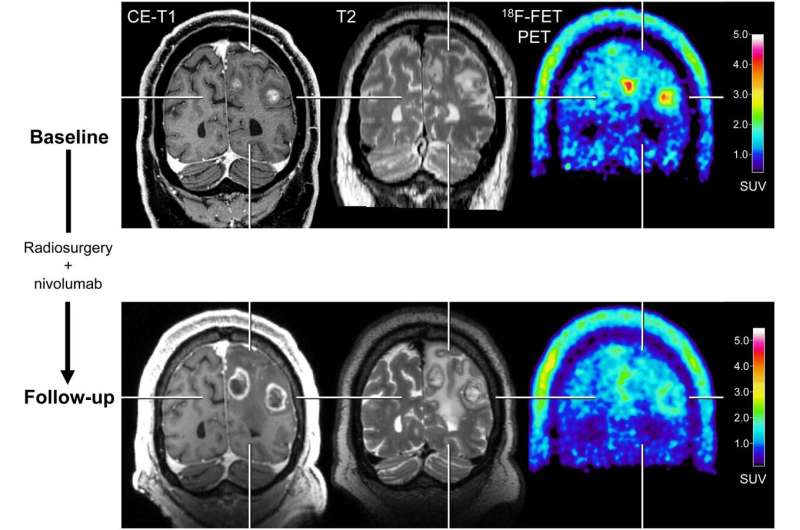With new treatments, PET imaging adds valuable information to brain metastasis monitoring


For patients with brain metastases, amino acid positron emission tomography (PET) can provide valuable information about the effectiveness of state-of-the-art treatments. When treatment monitoring with contrast-enhanced magnetic resonance imaging (MRI) is unclear, adding 18F-FET PET can help to accurately diagnose recurring brain metastases and reliably assess patient response. This research was published in The Journal of Nuclear Medicine.
Newer treatment options for patients with brain metastases—such as immune checkpoint inhibitors and targeted therapies—are effective, but can cause a variety of side effects. As a result, imaging findings on contrast-enhanced MRI can be highly variable, and it can be difficult to tell whether a treatment is working.
“Essentially, these new treatments have requirements of brain imaging which cannot be met by conventional MRI,” said Norbert Galldiks, MD, professor of neurology, neurologist and neuro-oncologist at the University Hospital Cologne and Research Center in Juelich, Germany. “In our study, we tried to determine if adding 18F-FET PET could help to overcome some of these imaging challenges.”
The retrospective study included melanoma and lung cancer patients with brain metastases who had been treated with immune checkpoint inhibitors or targeted therapy alone or in combination with radiotherapy. 18F-FET PET imaging was shown to be a useful method when conventional MRI was inconclusive. It could correctly diagnose brain metastasis relapses and identify patients who were responding to treatment and those who were not.
Source: Read Full Article